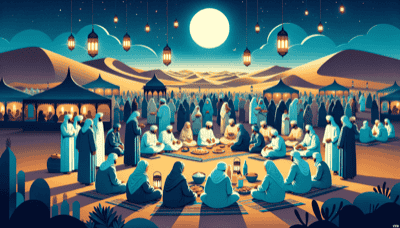We're here to help you keep count of the days to or since a date. Just click the button below and enter your chosen date to get started. Also choose the suggested days or search for a special day above #countingthedays

Eid al-Fitr, also known as Festival of Breaking the Fast, is a significant Islamic holiday celebrated by Muslims worldwide, marking the end of Ramadan, the holy month of fasting. In Somalia, a predominantly Muslim country, Eid al-Fitr holds great cultural and religious importance.
Eid al-Fitr was instituted by the Prophet Muhammad and is observed on the first day of Shawwal, the month following Ramadan. It is a day of joy and thanksgiving to Allah for the strength given to complete the fast. The celebration is rooted in Islamic tradition and has been observed by Somali Muslims for centuries.
On this day, Somalis begin with a special prayer called Salat al-Eid, which is performed in large congregations at mosques or open areas. People wear their finest clothes—often new or specially made for Eid—as a symbol of renewal and cleanliness.
The spirit of charity is central to Eid; thus, Somalis practice Zakat al-Fitr, giving to those in need before the Eid prayers commence. This act ensures that even the less fortunate can celebrate the day with food and festivity.
After prayers, people visit relatives and friends to exchange greetings such as "Ciid Mubarak" or "Ciid Wanaagsan," which means "Blessed Eid" or "Happy Eid." Homes are filled with guests, where traditional foods like xalwo (halwa), dates, and sweets are served alongside Somali tea or coffee.
Children receive gifts or money, known as Eidiyah, adding to their excitement. Public celebrations may include music, folk dances, and community events when security permits.
In summary, Eid al-Fitr in Somalia is a day marked by communal prayers, charity towards those in need, family gatherings, feasting on traditional foods, gift-giving for children, and overall joyous celebrations reflecting Somali culture interwoven with Islamic practices.